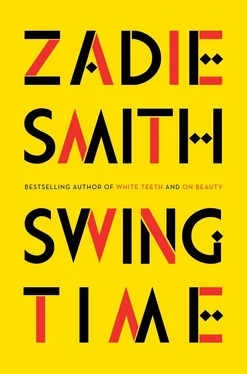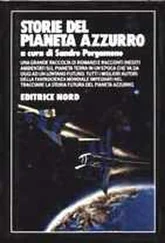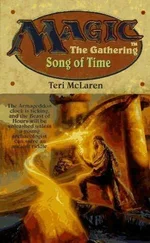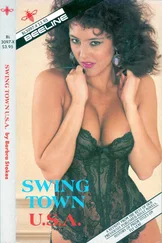His face was so hopeful it made me laugh. We got some of our old friendly rhythm back, and sat talking for a long time, and I thought it was not impossible that there might be a future in which I could care for him. I was settling into the idea that I wasn’t going anywhere, there was no hurry any longer, I would not be on the next plane. Time was on my side, as much as it is on anyone’s. Everything that afternoon felt wide open to me, a kind of shock, I didn’t know what was happening in the next few days or even the next few hours — a new feeling. I was surprised when I looked up from my second coffee and saw the day fading and the night almost upon us.
Afterward, he wanted to get on the tube, at Waterloo, it was the best stop for me, too, but instead I left him and chose the bridge. Ignoring both barriers, walking straight down the center, over the river, until I reached the other side.
The last time I saw my mother alive we talked about Tracey. That isn’t strong enough: Tracey was really the only thing that allowed us to speak at all. My mother was mostly too tired to speak or be spoken to, and for the first time in her life books held no attraction. I sang to her instead, which she seemed to like — as long as I stuck to the old Motown classics. We watched TV together, something we’d never done before, and I made small talk with Alan Pennington, who came in every now and then to check on my mother’s fierce hiccups and her stools and the progression of her delusions. He brought lunch, which she could no longer look at never mind eat, but on that last day we had together, when Alan left the room, she opened her eyes and told me in a calm, authoritative voice, as if remarking on something that was a plain and objective fact — like the weather outside or what was sitting on her plate — that the time had come to “do something” about Tracey’s family. At first I thought she was lost in the past, she often was in those last days, but soon I understood she was speaking of the children, Tracey’s children, although in speaking of them she moved freely between their reality, as she imagined it, the history of our own little family, and a deeper history: it was the last speech she ever gave. She works too hard, said my mother, and the children don’t see her, and now they want to take my children away, but your father was very good, very good, and often I think: was I a good mother? Was I? And now they want to take my children away from me… But I was just a student, I am studying, because you have to learn to survive, and I was a mother and I have to learn, because you knew that any one of us they caught reading or writing faced jail or a whipping or worse, and anyone caught teaching us to read or write got the same, jailed or whipped, it was the law at that time, it was very strict, and in that way we were taken out of our time and place, and then stopped from even knowing our time and place — and you can’t do anything worse to a people than that. But I don’t know if Tracey was a good mother, though I certainly tried my best to raise them all, but I know for sure your father was very good, very good…
I told her she was good. The rest didn’t matter. I told her everybody had tried their best within the limits of being themselves. I don’t know if she heard me.
I was gathering my things when I heard Alan Pennington coming down the hall, singing in his flat, off-tune way, one of my mother’s favorite Otis tracks, about being born by the river, and running ever since. “Heard you do that one yesterday,” he said to me, appearing in the doorway, chipper as ever. “Lovely voice, you have. Your mum’s very proud of you, you know, she’s always talking about you.”
He smiled at my mother. But she was beyond Alan Pennington.
“It’s clear as day,” she murmured, closing her eyes as I got up to leave. “They should be with you. The best possible place for those children is with you.”
• • •
For the rest of that afternoon I entertained the fantasy, not seriously, I don’t think, it was only a Technicolor dreamsong playing in my head: a ready-made family, suddenly in the here and now, filling my life. The next day, I took a morning walk around the barren perimeter of Tiverton Rec, the wind whipping through the caged fence, carrying away sticks thrown wide for dogs, and found myself walking on, in the opposite direction from the flat and past the station that would have taken me to the hospice. My mother died at twelve minutes past ten, just as I turned into Willesden Lane.
Tracey’s tower came into view, above the horse chestnuts, and with it reality. These were not my children, would never be my children. I almost turned back, like someone who has woken abruptly from a sleepwalk, except for an idea, new to me, that there might be something else I could offer, something simpler, more honest, between my mother’s idea of salvation and nothing at all. Impatient, I left the path and crossed diagonally through the grass, heading for the covered walkway. I was about to enter the stairwell when I heard music, stopped and looked up. She was right above me, on her balcony, in a dressing gown and slippers, her hands in the air, turning, turning, her children around her, everybody dancing.
Thank you to my early readers: Josh Appignanesi, Daniel Kehlmann, Tamsin Shaw, Michal Shavit, Rachel Kaadzi Ghansah, Gemma Seiff, Darryl Pinckney, Ben Bailey-Smith, Yvonne Bailey-Smith and, in particular, Devorah Baum, for encouragement when it was most needed.
Special thanks to Nick Laird, who read first and saw what had to be done with time, just in time.
Thanks to my editors and agent: Simon Prosser, Ann Godoff and Georgia Garrett.
Thanks to Nick Parnes, Hannah Parnes and Brandy Jolliff, for reminding me what work was like in the nineties.
Thanks to Eleanor Wachtel, for introducing me to the matchless Jeni LeGon.
Thank you to Steven Barclay, for a little space in Paris when it was most needed.
I am indebted to Dr. Marloes Janson, whose engrossing, thoughtful and inspiring anthropological study Islam, Youth, and Modernity in the Gambia: The Tablighi Jama‘at proved invaluable, bringing context where I had impressions, possible answers when I had questions, and providing many of the cultural underpinnings of this story, as well as helping create the feel and texture of certain scenes in the novel. A note on geography: North London, in these pages, is a state of mind. Some streets may not appear as they do in Google Maps.
• • •
Nick, Kit, Hal — love and gratitude.
FICTION
White Teeth
The Autograph Man
On Beauty
NW
NONFICTION
The Book of Other People (editor)
Changing My Mind: Occasional Essays












